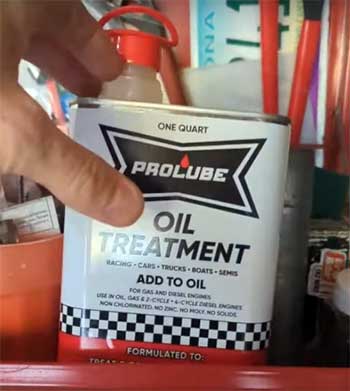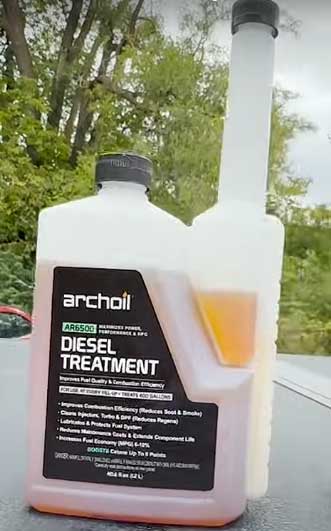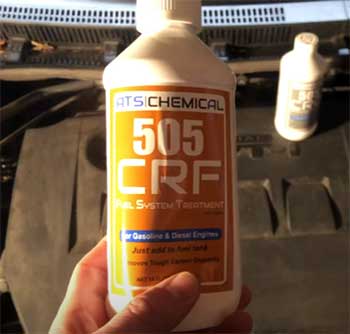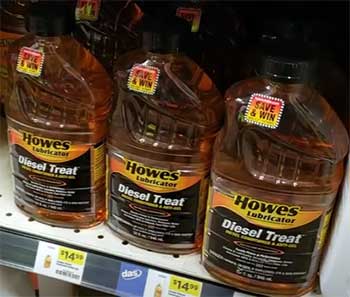If you’re like me, you’ve probably tried multiple products to improve your vehicle’s performance. When I heard about Prolube Oil Treatment, I was skeptical but curious.
Could it really deliver the horsepower boost, lower operating temperatures, and reduce engine noise as advertised?
I decided to give it a try in my own car and report back my findings. If you’re considering Prolube for your engine, you’re likely wondering where to buy it. I found the best place to get it is through their official site or trusted online automotive retailers like Amazon and AutoZone, where you can often catch good deals.
My First Impressions of Prolube

When I first got my hands on a bottle of Prolube Oil Treatment, the first thing I noticed was its promise to improve fuel economy and reduce wear on the engine.
I’m always interested in keeping my vehicle running smoothly and extending its life, so I thought it was worth a shot.
After all, it’s supposed to blend well with both synthetic and petroleum-based oils, which gave me peace of mind.
I added Prolube during my regular oil change, poured it right into the crankcase, and also tried it in the power steering for good measure.
The product claims to work instantly, so I was eager to see the results.
- Fuel Economy
The first thing I noticed after using Prolube was a slight increase in fuel efficiency. Over the first few days, my car’s mileage actually jumped by about 2%. I drive an older sedan that usually averages about 20 mpg.
With Prolube, I was getting closer to 21 mpg, which was impressive. However, like many reviews I’ve read, the improvement wasn’t permanent. After a week or so, the mpg settled back to its normal range. That said, the temporary boost was a nice bonus, especially for long road trips.
- Engine Noise and Vibration
I’ve always been a stickler for a quiet ride, and Prolube didn’t disappoint. I was surprised at how quickly I noticed the reduction in engine noise.
The engine purred quietly, and any subtle vibrations I had previously felt at idle were virtually gone. Even on the highway, the engine was noticeably smoother, which made the drive feel more effortless.
- Longevity and Maintenance
In terms of long-term maintenance, Prolube claims to extend oil life, reduce oil consumption, and eliminate dry starts. While I’ve only used it for one oil cycle so far, I can attest that my oil seemed to stay cleaner for a longer period than usual.
Normally, by the time I hit 3,000 miles, the oil would start to darken. However, with Prolube, the oil looked surprisingly clean when I checked it after about 2,500 miles.
Pros And Cons of Prolube Oil Treatment

Pros
- Reduces Engine Noise: Prolube significantly quieted my engine, especially at idle and during highway speeds. This made for a much more pleasant driving experience.
- Improves Fuel Economy: Although the mpg boost wasn’t permanent, the short-term increase in fuel efficiency was noticeable. This could be particularly useful on long trips.
- Extends Oil Life: I appreciated how the oil stayed cleaner for a longer period. I expect that using Prolube consistently could extend the time between oil changes.
- Works in Multiple Applications: Prolube isn’t just for your engine. You can also use it in transmissions (excluding CVTs), power steering systems, and differentials, which adds versatility.
- Compatible with Synthetic and Petroleum-Based Oils: Whether you’re running synthetic or conventional oil, Prolube blends in seamlessly.
- Lowers Engine Temperature: The product does a good job of keeping engine temperatures down, particularly during heavy-duty driving or in high-temp environments.
Cons
- Temporary Fuel Economy Boost: While the initial increase in mpg was impressive, it didn’t last beyond a few days. This is something to keep in mind if you’re looking for long-term fuel savings.
- Effectiveness Varies: Based on some reviews I’ve seen, not everyone experiences the same level of improvement. It might depend on the type of engine or how old your vehicle is.
- Pricey for Regular Use: Prolube isn’t the cheapest oil treatment on the market, and if you’re planning to use it regularly, the cost can add up.
Tips For Using Prolube
When it comes to maintaining your vehicle with Prolube, there are a few best practices I’ve picked up that ensure you get the most out of the product.
- Use the Correct Amount: It’s important not to overdo it with the oil treatment. The product label specifies the amount to use based on your engine size and the application (engine oil, power steering, or transmission). For most car engines, one bottle is enough, but you may need to adjust for larger or smaller engines.
- Mix It Properly: If you’re adding Prolube to your oil, make sure to mix it well by running the engine for a few minutes afterward. This ensures the product is distributed evenly throughout the engine.
- Consistency is Key: To see the best results, I recommend using Prolube regularly with your oil changes. While you might notice some immediate benefits, its long-term effects, like reducing wear and extending oil life, come from consistent use.
- Pair It with Quality Oil: I paired Prolube with synthetic oil, and the combination worked well for me. However, it should also perform with conventional oils. If you’re looking to maximize engine longevity, synthetic oil with Prolube could be the ideal combo.
- Monitor Oil Levels: Since Prolube can help reduce oil consumption, keep an eye on your oil levels. In my case, I didn’t need to top up my oil as frequently after using Prolube, but it’s still good practice to check regularly.
Comparison With Other Brands
Prolube isn’t the only oil treatment on the market, so I thought it would be helpful to compare it with some well-known alternatives.
- AR6500 Diesel Treatment

The AR6500 Diesel Treatment is often praised for its ability to clean injectors and improve fuel efficiency, especially in diesel engines.
This product is designed specifically for diesel, so if you’re running a diesel vehicle, you might be drawn to the AR6500.
However, Prolube is more versatile, as it works in both gasoline and diesel engines, and can be used not only in the crankcase but also in transmissions (except CVTs), power steering systems, and differentials.
While AR6500 is excellent for improving fuel economy and injector cleaning, Prolube stands out when it comes to reducing engine noise and vibration.
In my experience, Prolube made a more noticeable difference in how smooth the engine ran, particularly in older gasoline engines.
Additionally, Prolube offers benefits like extending oil life and reducing wear, which the AR6500 doesn’t specifically target.
- 505 CRF Fuel Treatment

The 505 CRF Fuel Treatment is another diesel-specific product that focuses on cleaning and protecting fuel systems.
It’s great at preventing rust and corrosion, which can be a huge plus for diesel engines, especially in colder climates.
However, 505 CRF is more of a fuel system cleaner, while Prolube takes a broader approach by conditioning engine metal and reducing oil consumption.
If you’re looking for a fuel system cleaner, 505 CRF is a solid option, but Prolube offers more comprehensive engine protection.
While the 505 CRF shines in keeping the fuel system running smoothly, Prolube’s ability to reduce engine noise, extend oil life, and lower operating temperatures makes it a more well-rounded product, particularly if you’re concerned about overall engine health.
- Howes Diesel Treatment

Howes Diesel Treatment is widely known for its ability to prevent gelling in diesel fuel, especially in extremely cold conditions.
This makes it a favorite among truck drivers and those who operate vehicles in colder climates.
It’s particularly useful for keeping diesel engines running smoothly in harsh conditions.
However, Prolube offers more than just cold-weather protection—it’s designed to work in a variety of applications, from engine oil to power steering systems, making it more versatile.
When it comes to engine noise reduction and improving engine longevity, Prolube outperforms Howes Diesel Treatment.
Howes excels in diesel-specific environments, particularly in preventing gelling and improving fuel efficiency during winter, but Prolube is a better option if you’re looking for something that can enhance engine performance year-round, regardless of weather conditions.
Frequently Asked Questions (FAQ)
It depends on the application. For most standard engines, one bottle should suffice for an oil change. If you’re using it in power steering or transmissions, refer to the product instructions for specific measurements. In my case, one bottle was more than enough for my car’s engine and power steering system.
Yes, oil treatments like Prolube can offer noticeable improvements in engine performance. From my experience, Prolube did a great job reducing engine noise, improving fuel economy temporarily, and extending oil life. However, the effectiveness can vary depending on your engine’s age and condition.
Prolube has been on the market for several years, gaining a reputation for improving vehicle performance, particularly in heavy-duty and high-temperature engines. The brand isn’t as mainstream as some others, but it has a dedicated following, particularly among those with older or high-mileage vehicles.
Generally, yes. Oil additives like Prolube are formulated to be safe for engines when used as directed. I didn’t experience any issues during my test period. That being said, it’s always best to follow the product guidelines and not overuse it, as adding too much of anything to your engine can cause problems.
Final Thoughts
Overall, my experience with Prolube Oil Treatment was positive. While it didn’t revolutionize my vehicle’s performance, it did provide some noticeable benefits like reducing engine noise, improving fuel economy temporarily, and extending oil life.
If you’re someone who wants to keep your engine running smoothly and extend the time between oil changes, Prolube is definitely worth a try. Just remember to buy it from trusted retailers like their official site, Amazon, or AutoZone to ensure you’re getting the real deal.
If you’re looking for a versatile oil treatment that can also work in power steering, transmissions, and differentials, Prolube stands out as a strong contender.
While the price may be a bit higher than other brands, the performance gains make it a worthwhile investment for the long-term health of your engine.

